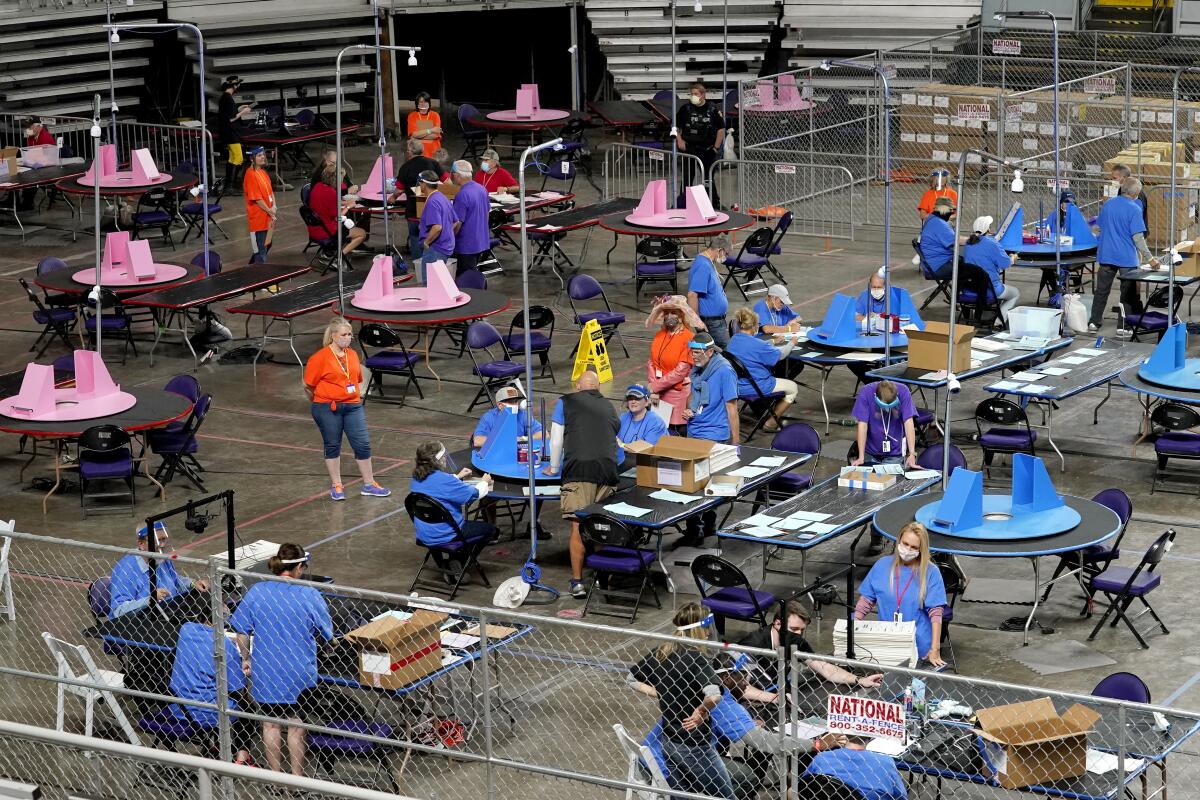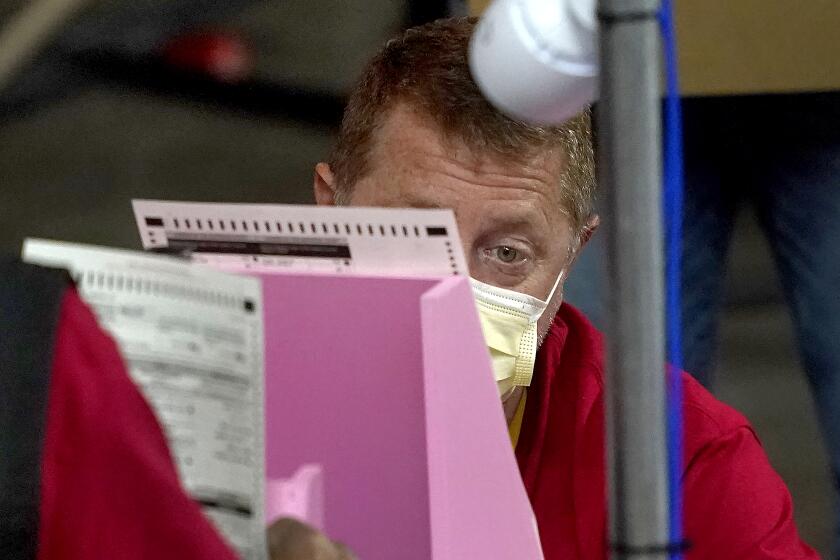Arizona officials decry Republican efforts to undermine election results with audit

- Share via
WASHINGTON — Arizona officials on Thursday testified before Congress that they were not surprised that a Republican-led audit of a key county’s 2020 election results failed to find evidence of fraud or that it has fueled conspiracy theories that have undermined the public’s faith in democracy.
Jack Sellers, the Republican chair of Maricopa County’s Board of Supervisors, told the House Oversight and Reform Committee it was clear that some of the state’s Republican leaders “do not care what the facts are.”
“They just want to gain political power and gain money by fostering mistrust of the greatest power an individual can exercise in the United States — their vote,” he said.
Sellers was joined at the hearing by another Republican member of the Maricopa County board and outside election experts. Doug Logan, the chief executive of the firm that conducted the audit, was invited to attend but did not appear.
Logan’s firm, Cyber Ninjas, was hired in April by the Republican-controlled state Senate to conduct the audit of the results in Maricopa County after former President Trump’s months-long, falsehood-filled campaign to overturn an election he lost. Logan had previously shared unfounded conspiracy theories that questioned Joe Biden’s victory on social media, and his company reportedly received millions from private donors connected to Trump.
Experts have questioned the validity of Cyber Ninjas’ audit, saying the company was not following best practices while inspecting and tabulating millions of ballots.
Even though the audit ultimately reaffirmed Biden’s victory — giving him nearly 100 more votes than officially tallied, according to Cyber Ninjas’ report released last month — outside experts said Thursday that it ended up sowing more discord.
This “scam” has kept tens of millions of Americans “angry, divided and donating,” testified David Becker, executive director of the Center for Election Innovation and Research.
Rep. Carolyn B. Maloney (D-N.Y.), chair of the House committee, described the Maricopa County audit as a “fishing expedition” and said it is not “about fairness, election security, or the truth.”
“They are instead designed to promote conspiracy theories and raise doubts about our elections,” Maloney said.
The lawmaker alleged the audit will make it “easier for dishonest officials to overturn the results of elections they don’t like” and argued it also has helped lay the groundwork for Republican-controlled states to restrict voting access.
Rep. Andy Biggs (R-Ariz.) accused Maloney of holding the hearing to “scuttle” those state efforts.
“Dems and leftists have been highly critical of this audit even before it began,” Biggs said. He added that Democrats do not think any legislative changes are not appropriate.
In an aging Phoenix arena that once hosted NBA games, Republicans search for evidence to support claims of election fraud they already believe.
Ken Bennett, Arizona’s former Republican secretary of state and current audit liaison for the state Senate, testified that he did not believe the audit was an effort to overturn an election.
This “is about verifying Arizona laws and procedures were followed and identifying how our laws can be improved and better enforced going forward to maximize integrity in our elections,” Bennett said.
Sellers said the audit and Trump’s unfounded claims about the election results have led to an uptick in threats directed at him and other local officials.
Sellers said the county was forced to erect a fence around the supervisors’ headquarters in downtown Phoenix to protect election workers, who have faced violent threats for much of the year.
“This kind of conduct you would expect in an autocratic republic,” said District of Columbia Delegate Eleanor Holmes Norton, “not a democracy like the United States of America.”
More to Read
Get the L.A. Times Politics newsletter
Deeply reported insights into legislation, politics and policy from Sacramento, Washington and beyond. In your inbox three times per week.
You may occasionally receive promotional content from the Los Angeles Times.












